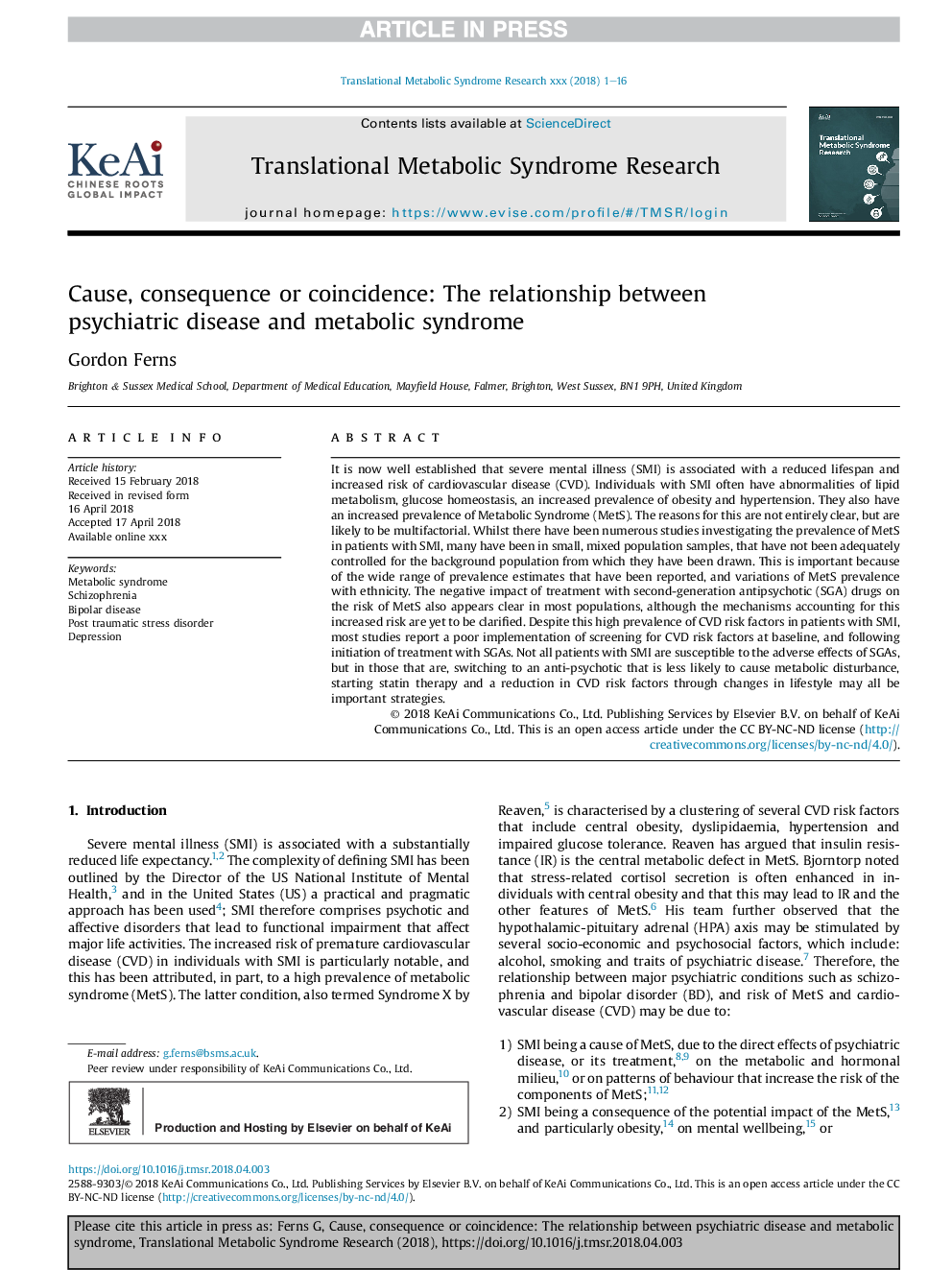| Article ID | Journal | Published Year | Pages | File Type |
|---|---|---|---|---|
| 10224726 | Translational Metabolic Syndrome Research | 2018 | 16 Pages |
Abstract
It is now well established that severe mental illness (SMI) is associated with a reduced lifespan and increased risk of cardiovascular disease (CVD). Individuals with SMI often have abnormalities of lipid metabolism, glucose homeostasis, an increased prevalence of obesity and hypertension. They also have an increased prevalence of Metabolic Syndrome (MetS). The reasons for this are not entirely clear, but are likely to be multifactorial. Whilst there have been numerous studies investigating the prevalence of MetS in patients with SMI, many have been in small, mixed population samples, that have not been adequately controlled for the background population from which they have been drawn. This is important because of the wide range of prevalence estimates that have been reported, and variations of MetS prevalence with ethnicity. The negative impact of treatment with second-generation antipsychotic (SGA) drugs on the risk of MetS also appears clear in most populations, although the mechanisms accounting for this increased risk are yet to be clarified. Despite this high prevalence of CVD risk factors in patients with SMI, most studies report a poor implementation of screening for CVD risk factors at baseline, and following initiation of treatment with SGAs. Not all patients with SMI are susceptible to the adverse effects of SGAs, but in those that are, switching to an anti-psychotic that is less likely to cause metabolic disturbance, starting statin therapy and a reduction in CVD risk factors through changes in lifestyle may all be important strategies.
Related Topics
Life Sciences
Biochemistry, Genetics and Molecular Biology
Genetics
Authors
Gordon Ferns,
